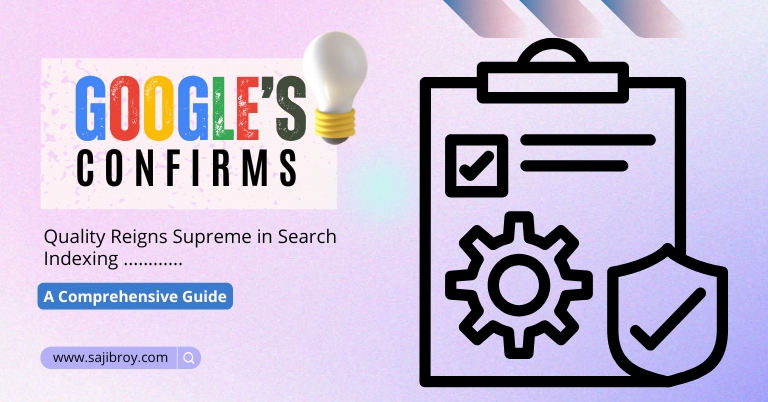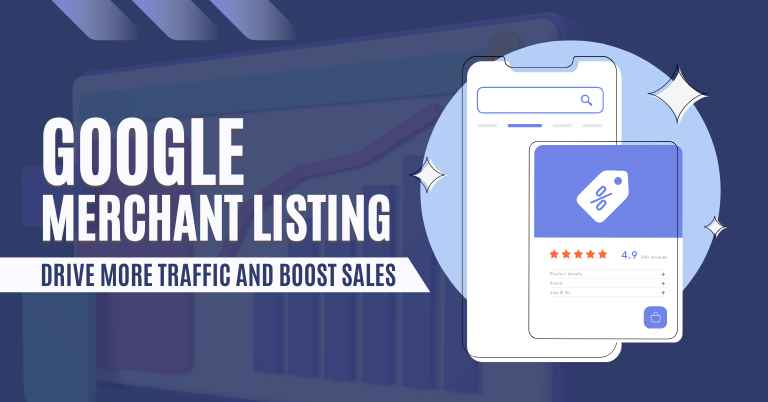Blogs help SEO by increasing website visibility and expanding keyword research, ultimately improving search engine rankings and attracting organic traffic. When you have an updated blog, it contributes to important ranking factors that benefit your overall SEO strategy.
Blogging not only enhances your website’s relevance and authority but also provides more opportunities to optimize content and engage with your audience. By utilizing on-page SEO tactics within blog posts, you can further boost the quality of your website’s SEO and make it more appealing to both search engines and visitors.
In addition, blogging allows you to repurpose content for various marketing channels, generate leads, and strengthen brand recognition. Blogging is a valuable tool for improving your website’s SEO performance and driving success in the digital landscape.
Let's See the Topic Overview
The Role Of Blogs In SEO
Blogs play a crucial role in search engine optimization (SEO) by driving organic traffic to your website and increasing its visibility. With the right blogging strategy, you can improve your website’s ranking on search engine results pages (SERPs) and attract more visitors.
Blogs as a tool for driving organic traffic
One of the primary benefits of having a blog for SEO is that it helps drive organic traffic to your website. Each blog post you publish is an opportunity to target specific keywords that your target audience may be searching for. By optimizing your blog posts with relevant and targeted keywords, you increase the chances of your website appearing in search engine results.
When you rank higher on search engines like Google or Bing, more people are likely to discover your website organically. This means that you don’t have to rely solely on paid advertising or other promotional methods to attract visitors. Instead, well-optimized blog posts can attract relevant traffic and potential customers.
Increasing website visibility through blogging
Blogging also helps increase the visibility of your website. Each new blog post creates a fresh piece of content that search engines can index. This means that your website has a higher chance of appearing in search results when people search for related topics.
Additionally, blogging allows you to create internal and external links within your content. Internal links help search engines understand the structure and hierarchy of your website, while external links show that you have valuable resources that other websites find worth linking to. Both types of links can improve your website’s authority and visibility.
Moreover, regular blogging helps to keep your website active and relevant. Search engines favor websites that are constantly updated with fresh content. By publishing regular blog posts, you demonstrate to search engines that your website is active and provides valuable information to users.
Blogs have a vital role in SEO by driving organic traffic to your website and increasing its visibility. By optimizing blog posts with relevant keywords and maintaining a consistent blogging strategy, you can improve your website’s ranking on search engines and attract more visitors. So, start blogging today and reap the benefits of increased traffic and online visibility.
Key Benefits Of Blogging For SEO
Blogging is an essential aspect of search engine optimization (SEO) as it brings numerous benefits to website owners and businesses. By regularly updating a blog with valuable and relevant content, you can boost your website’s visibility in search engine results pages (SERPs) and attract more organic traffic. In this article, we will explore the key benefits of blogging for SEO and how it can positively impact your online presence.
Generating relevant and high-quality content
One of the main benefits of blogging for SEO is the ability to generate relevant and high-quality content. By regularly publishing blog posts, you can provide valuable information to your target audience and establish yourself as an industry expert. Additionally, search engines favor websites that consistently produce fresh and engaging content, resulting in higher rankings and improved visibility in search results.
Expanding keyword opportunities
Blogging allows you to expand your keyword opportunities and target a wider range of search queries. By strategically incorporating relevant keywords into your blog posts, you can optimize your content for specific topics and increase the chances of your website appearing in search engine results. This not only helps attract targeted organic traffic but also enhances your overall SEO efforts.
Establishing authority and expertise
When you regularly share insightful and accurate information through your blog posts, you can establish yourself as an authority in your industry. This helps build trust with your audience and enhances your online reputation. Search engines also consider websites with authoritative content as reliable sources of information, resulting in higher rankings and improved visibility in search results.
Building backlinks and improving domain authority
Blogging is an effective way to build backlinks and improve your website’s domain authority. By creating valuable and shareable content, you increase the chances of other websites linking back to your blog posts. These backlinks not only contribute to higher search engine rankings but also drive referral traffic to your website. Additionally, search engines consider backlinks as endorsements of the quality and relevance of your content, further boosting your online presence.
Optimizing Blogs For SEO
Optimizing your blogs for SEO is crucial if you want to increase your website’s visibility and drive organic traffic. By implementing the right SEO strategies, you can improve your blog’s chances of ranking higher in search engine results pages (SERPs), attracting more readers and potential customers. In this section, we will explore some key tactics for optimizing blogs for SEO.
Keyword Research and Targeting
When it comes to optimizing blogs for SEO, keyword research is essential. Conducting thorough keyword research allows you to identify relevant search terms and phrases that your target audience is likely to use when looking for information related to your blog topic. By incorporating these keywords strategically throughout your blog content, you can enhance your chances of ranking higher in search engine results.
To conduct effective keyword research, utilize tools like Google Keyword Planner, Ahrefs, or SEMrush. These tools provide valuable insights into search volume, competition, and other metrics that can help you identify the most promising keywords to target. Once you’ve identified your target keywords, make sure to include them naturally in your blog’s title, headings, subheadings, and within the body of your content.
Creating Engaging and Shareable Content
Creating high-quality, engaging content is a crucial aspect of optimizing your blog for SEO. Search engines value content that is informative, valuable, and satisfies user intent. By creating content that is engaging, relevant, and valuable to your target audience, you increase the likelihood of attracting shares, likes, and backlinks – all of which can positively impact your blog’s SEO.
To create engaging content, take the time to understand your target audience and their needs. Conduct research, ask questions, and address common pain points or questions within your blog posts. Incorporate multimedia elements such as images, videos, or infographics to make your content more visually appealing and shareable. Additionally, structure your content with subheadings, bullet points, and numbered lists to enhance readability and user experience.
Optimizing Meta Tags and Descriptions
Meta tags and descriptions play a crucial role in optimizing your blog for SEO. Meta tags are snippets of HTML code that provide search engines with information about your blog, while meta descriptions provide a brief summary of your blog’s content on SERPs.
Ensure that your meta tags and descriptions accurately reflect the content of your blog while incorporating relevant keywords. Aim to create unique, compelling meta descriptions that entice users to click through to your blog. Keep your descriptions concise, typically between 50-160 characters, and use action-oriented language to encourage user engagement.
Harnessing the Power of Internal Linking
Internal linking is an essential SEO strategy that can help search engines discover and index your blog pages more effectively. It involves linking relevant pages within your blog to one another, creating a network of interconnected content.
By strategically incorporating internal links throughout your blog posts, you can improve your blog’s site structure, distribute link equity, and provide a better user experience. When adding internal links, ensure that the anchor text you use is descriptive and includes relevant keywords. Avoid over-linking and prioritize linking to high-authority, relevant pages within your blog.
By implementing these optimization strategies, you can enhance the SEO performance of your blog and attract more organic traffic. Remember to conduct thorough keyword research, create engaging content, optimize meta tags and descriptions, and harness the power of internal linking to maximize your blog’s visibility in search engine results pages.
Blogging Best Practices For SEO
When it comes to improving your website’s SEO, blogging can be a powerful tool in your digital marketing arsenal. Not only does it allow you to publish fresh and valuable content regularly, but it also helps enhance user experience, increase user engagement, and promote your blogs through various channels. In this blog post, we will explore some best practices for using blogs to boost your SEO efforts.
Consistency in publishing fresh and valuable content
Consistently publishing fresh and valuable content is crucial for SEO success. Search engines love websites that provide their users with up-to-date information and valuable insights. One of the best ways to achieve this is through blogging. By regularly publishing new blog posts, you can keep your website’s content fresh and relevant, giving search engines more reasons to crawl and index your site. Aim to create high-quality, informative, and well-researched blog posts that provide value to your target audience. Remember to use relevant keywords in your blog posts to optimize them for search engine indexing.
Incorporating multimedia elements for enhanced user experience
Incorporating multimedia elements such as images, videos, and infographics into your blog posts can greatly enhance the user experience. Not only do multimedia elements make your blog posts visually appealing, but they also help break up the text and make it easier to read. When using images, optimize them for SEO by using descriptive alt tags and filenames. Additionally, embed relevant videos from platforms like YouTube to enrich your content and provide additional value to your readers. Remember, a positive user experience not only keeps your visitors engaged but also signals to search engines that your website is user-friendly, which can positively impact your SEO rankings.
Encouraging user engagement through comments and social sharing
User engagement is an essential aspect of a successful blog. Encourage your readers to engage with your content by enabling comments on your blog posts. Respond to their comments and foster a community around your blog. This not only creates a sense of community but also increases the visibility and reach of your blog post. Additionally, make it easy for readers to share your blog posts on social media platforms by including social sharing buttons. Social sharing signals are a valuable indicator for search engines, and increased social sharing can lead to more traffic and improved SEO rankings.
Promoting blogs through various channels
Once you have created valuable blog content, it’s important to promote it through various channels to reach a wider audience. Share your blog posts on social media platforms like Facebook, Twitter, LinkedIn, and Instagram to increase their visibility. Additionally, consider sending out newsletters or email updates to your subscribers to inform them about your latest blog posts. Don’t forget to optimize your blog posts for social sharing by including captivating headlines, engaging meta descriptions, and visually appealing featured images. By effectively promoting your blog posts, you can attract more traffic, increase brand visibility, and improve your SEO rankings.
In conclusion, following these blogging best practices for SEO can help you improve your website’s visibility, increase user engagement, and attract more organic traffic. By consistently publishing fresh and valuable content, incorporating multimedia elements, encouraging user engagement, and promoting your blogs through various channels, you can boost your SEO efforts and achieve higher rankings in search engine results.
Conclusion
Blogs play a crucial role in boosting SEO and improving website visibility on search engines. By regularly updating and optimizing blog content, businesses can enhance their ranking factors and attract more organic traffic. Each blog post has the potential to bring in new visitors from Google, Bing, and social media platforms, leading to increased resources and improved content relevancy.
Additionally, blogs allow businesses to target long-tail keywords and increase their chances of ranking for specific search queries. Moreover, blogging helps generate more leads and conversions, strengthens brand recognition, and builds authority in the industry. It also provides an opportunity to repurpose content for other marketing channels and engage with a wider audience.
With the numerous benefits that blogs offer for SEO, businesses can’t afford to overlook their importance in their digital marketing strategy. So start blogging today and see your search engine rankings soar!












